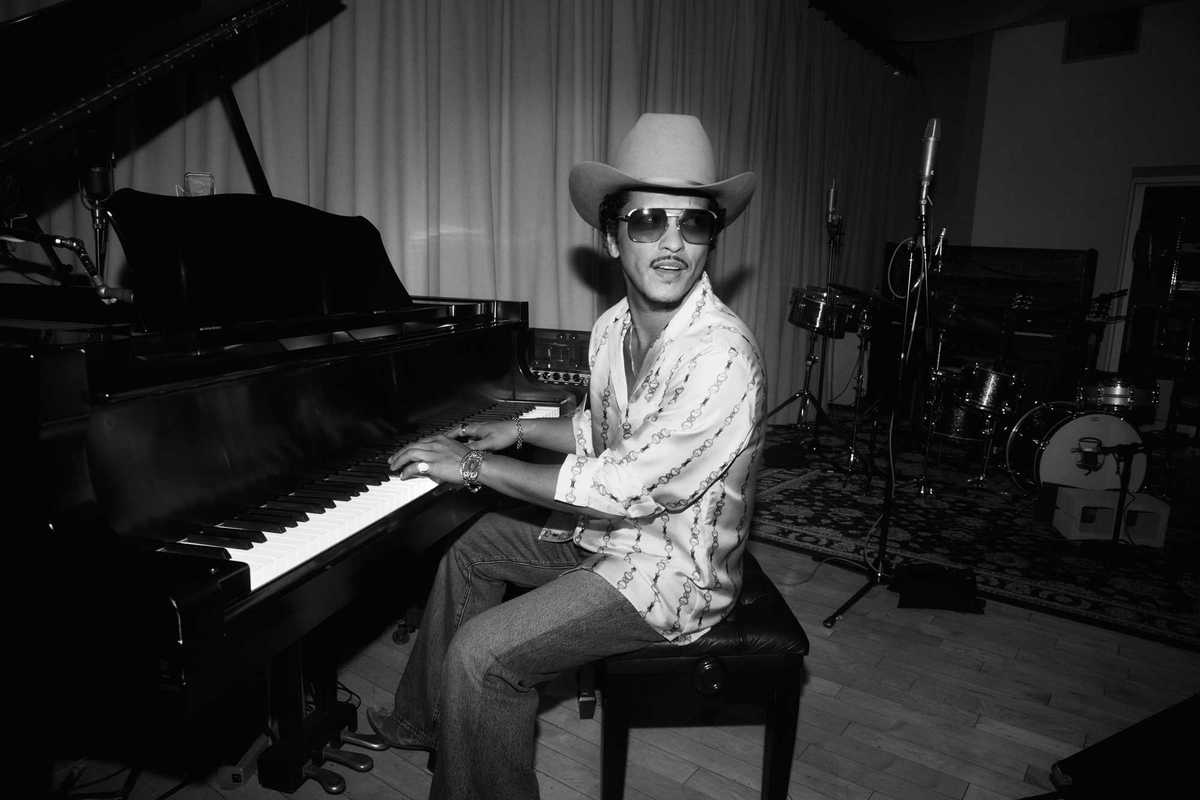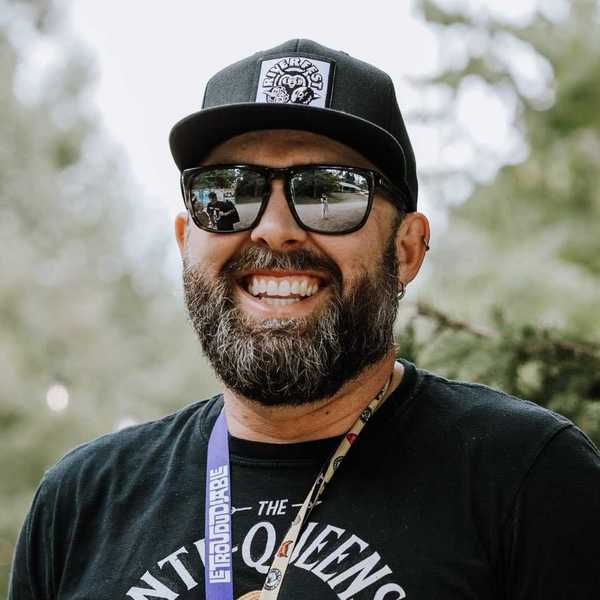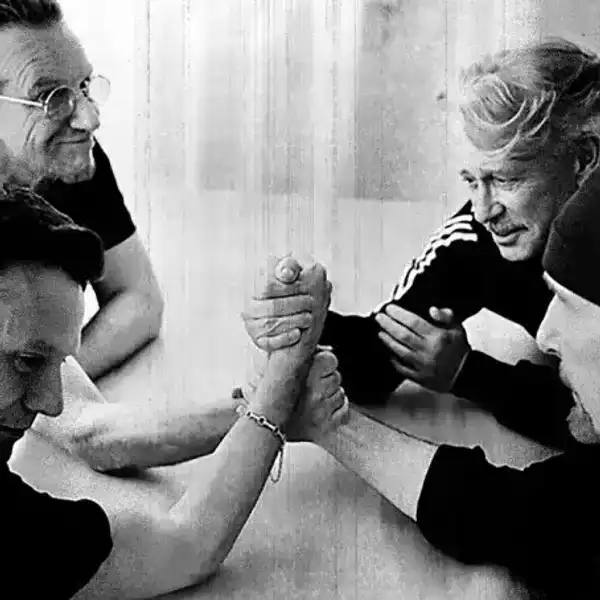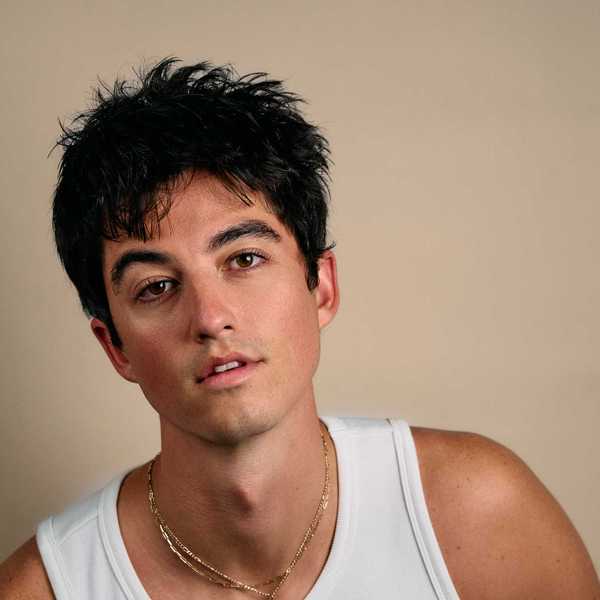CCMA Hall of Famer Anya Wilson In Redux
On the eve of her much-deserved induction, we interviewed the veteran country music promoter and publicist about a truly fascinating 50-year career that spans a galaxy of stars that include David Bowie, Garth Brooks and Dallas Smith.

By Kerry Doole
This Saturday night at the CCMA Gala Dinner & Awards in Calgary, highly-respected industry veteran Anya Wilson will be inducted into the Canadian Country Music Hall of Fame.
This is well-deserved recognition for her four decades of work in Canadian country music as a radio promoter, publicist, and journalist. Wilson's vibrant personality and beaming smile have helped make her a popular pillar of the country music community, as is sure to be shown at the event.
In an extensive interview with FYIMusicNews, she describes the honour as "pretty overwhelming actually. You don't usually think about what people think of you as you have your head down working. We aren't obsessed with what people think of us, but it is so nice when people show their appreciation. I am glad I'm not an artist, though. I don't know how they deal with it on an ongoing basis."
Many would say the accolade is overdue, but Wilson says, "I really am happy to have this happen now, at a good stage in my career."
She remains too busy as a radio promoter to spend much time strolling down memory lane, but Anya Wilson can reflect upon a genuinely fascinating career in music that now spans a full half-century. After all, how many other people can boast a resume that begins with working closely with David Bowie, T. Rex, Jimi Hendrix and Paul McCartney, then moves on to Ernest Tubb, Johnny Cash, Garth Brooks, George Canyon and Dallas Smith?
Her life in music story begins in swinging London in the late '60s, as she recalls. "I moved from my hometown in England south to London with my best friend. We went to secretarial school, and we both wound up getting jobs at Pye Records.
"That was an incredible experience, and that's where I discovered a job existed where all you had to do was go and talk to radio programmers about playing songs. I had no idea such a job existed! After working on a couple of projects, I ended up as a plugger for Roulette Records [run by the infamous Morris Levy], who had a small publishing office in London.
"My first hit was Tommy James and The Shondells' Mony Mony which got to No 1, and that really turned things around. You can work a long time without having an experience like that. After that, I worked as a record plugger for several companies. It was always with a company back then, as I had this working-class thing where you have to be hired by somebody.
"One company was called Gem. I did a favour for my friend Tony Visconti, who was producing David Bowie and T. Rex at the time. T. Rex had Ride A White Swan out and I just loved that song. The person they hired at Essex Music to work it was new and had not done a good job. That song stirred up my passion, so I went for it."
"The first show that played it was Saville's Travels, an influential morning show on the BBC. If you got played on something like that, everybody heard it. Other shows picked it up, and it made No. 2 on the British charts [late 1970]. After that, it was June Bolan, Marc's wife, who convinced me to start my own company."
The Acme Plug Co. was born, with Wilson recalling that "June promised me all the T. Rex work, plus I had worked with Long John Baldry as a client, and I did take some work from the company I'd been working for. From there, I got Jimi Hendrix, and then MainMan as a client, which meant David Bowie and Amanda Lear, and then Paul McCartney's Wings project."
Heady times indeed. "It took a lot of leg work and keeping up appearances," says Wilson.
As well as radio promotion, she took on the publicist role for some clients, including Bowie. "It was an incredible learning experience for me, though the pressure was always on. 'If you don't come back with the front page, don't come back at all' was actually said to me! After a 9 hour lunch, I got a front cover for David with Melody Maker."
"With music journalists back then you'd go to a restaurant, have lunch, then stay and have drinks until it was time for dinner and you'd buy them dinner if it was going the way you wanted. Then you'd get the commitment."
Wilson also did tour promotion for MainMan, as she recalls. "You would travel ahead of the tour, check out the venue, and sometimes give away t-shirts in local clubs. You'd take the journos and radio people to lunch, set them up to do previews, then do things when the artist was in town. They'd be our guests at dinner and for the show that night. Reviews were everything then. I was always on the train or plane across Britain."
Wilson had a ringside seat to witness the fascinating transformation of David Bowie and his rise to superstardom. "It took a while for David to break. When I first started working with him, he still looked like a hippie. I worked songs like Memory of a Free Festival; then Man Who Sold The World came out. That was one of my fave albums, but it was under-promoted."
"Then it was headlong into Hunky Dory, and then everything took off. There were commercial singles like Changes and the fashion thing. I can't count the number of gigs I went to where all the kids were dressed up like David."
She cites the creative relationship of Bowie and his manager Tony de Vries as crucial to this success. "I have never seen anything like their minds working together at that time. Without that dual approach, I don't think it would have happened for David."
As well as these superstar clients, Wilson worked a wide range of projects then. "The labels over there would hire you regularly. They just wanted to get results. I did have the pleasure of meeting Anne Murray when she had Snowbird, and I took her to the Playhouse Theatre for a live broadcast. She remembers that, which is nice."
Bowie's relocation to the US in 1973 meant Wilson had less work with him, though she recalls that "they did bring me out to the US once for three weeks when they were rehearsing Diamond Dogs."
A 'new broom' at EMI meant less work there too, "so my core roster needed replenishing," Wilson says.
Fate then intervened in the tall form of Long John Baldry. "He is one of my all-time favourite people, and he had moved to Canada. He came over for a visit, and we had dinner and he said, 'come over and work for us.' My relationship with my longtime boyfriend was petering out, so I decided to go for it."
Wilson dates this major life transformation back to "April or May 1978. I came over and worked with John and the other band on the roster, Goddo. My god, there have been some real eccentrics in my life, and Greg Godovitz stands alone!"
"That job lasted about a year, then that management company folded and I was out of a job and in Canada. I then saw an opening for National Promotion Manager for Cachet Records, run by Ed LaBuick. They had Ernest Tubb, Johnny Cash and Canadian star Ronnie Prophet."
"I had never worked country music before. The genre hardly existed in Britain outside of a few shows. I applied, went to the interview, and they asked if I knew anything about country music. I went, 'oh yes!' I lied through my teeth, and got the job!
"My territory was out west, and they flew me out. My first project was Ernest Tubb's 65th-anniversary album of duets, with people like Loretta Lynn. I had a university education in the country format and the people at the radio stations, and I thought they were wonderful.
"It was a humbler and more traditional format than the opinionated rock jocks I had dealt with, though nothing against them! The country guys were just really nice and just listening to them gave me an education about the format, and I liked it."
Cachet closed shop around a year later, and Wilson decided to strike out on her own, creating Anya Wilson Promotion & Publicity in 1980. "I became the first Independent female promo person in Canada, I got some work, and I have done it ever since," she states.
Her list of noted country music clients and accomplishments since then are too many to detail fully, but she cites as career highlights the major success of longtime clients George Canyon and Dallas Smith, plus Broken Bow Records (Jason Aldean, Lindsay Ell). With impeccable timing, it was announced earlier this week that Dallas Smith has just earned his eighth No. 1 single at Canadian country radio, a unique feat. "I was very pleased to have Dallas Smith hit #1 this week as he's my client," Wilson says. "It cheers me to be current as I receive this."
Wilson worked a variety of Canadian radio formats initially. "I got a gold record with English rockers London Quireboys, had a big disco hit with Eria Fachin, and worked with Acosta-Russell. Eventually, it didn't make sense to work other formats as I was getting so much work in country," she recalls.
At one stage, her company employed a staff of four, working out of her space in downtown Toronto arts-oriented building 401 Richmond. Now based out of the Scarborough, ON, home she shares with husband [and noted music journalist Larry Leblanc), Wilson says "my staff is now one and a half, me and half of my daughter's time. That suits me as I'm a bit of a control freak and tend to want to do it all myself!"
Reflecting upon four full decades in the Canadian country scene, Wilson notes that "it has been exciting to see the format rise and develop from a traditional one to including just about every genre. It has gone from being a niche market to one of the largest musical styles."
Her client list has reflected that growth, moving from Ernest Tubb, Johnny Cash, and Ronnie Prophet to the likes of Garth Brooks, George Canyon, Dallas Smith, and Broken Bow.
Along this journey, Wilson's expertise and organisational skills have been put to good use by the Canadian Country Music Association and other bodies.
She has served on numerous CCMA committees, helped establish a radio presence at the annual CCMA conference and voluntarily became the organization’s first publicist. "I worked the first nationally televised awards show, in Winnipeg in 1986, and then in Vancouver and Toronto," she explains. "I also helped bring in the Nashville Network as sponsors."
Wilson was also a driving force in the creation of the Country Music Association of Ontario (CMAO) and served as its vice-president for several years. She explains that "for years and years I have been asked to participate in panels across the country for local and provincial associations. It broke my heart that there was nothing significant like that in Ontario. I am very proud of what the CMAO has become even though I'm long gone from there now."
In 1996, Wilson created the curriculum for a course in Entertainment Public Relations/Communications at Trebas Institute in Toronto and taught there until 2001. In 1997, her company received the prestigious Canadian Music Industry Award for promotion and publicity.
Wilson also showed her journalistic chops by writing the “Home and Abroad” international column for Country Music News, from 1985 – 1989, and was simultaneously the Country Music Editor for the trade paper The Record.
She confesses she has no retirement plans as yet. "Neither Larry nor I can visualise what life without doing this would be like. I guess we'll have to figure that out at some stage, but right now we are both enjoying this."
That is great news for the country music industry.

















